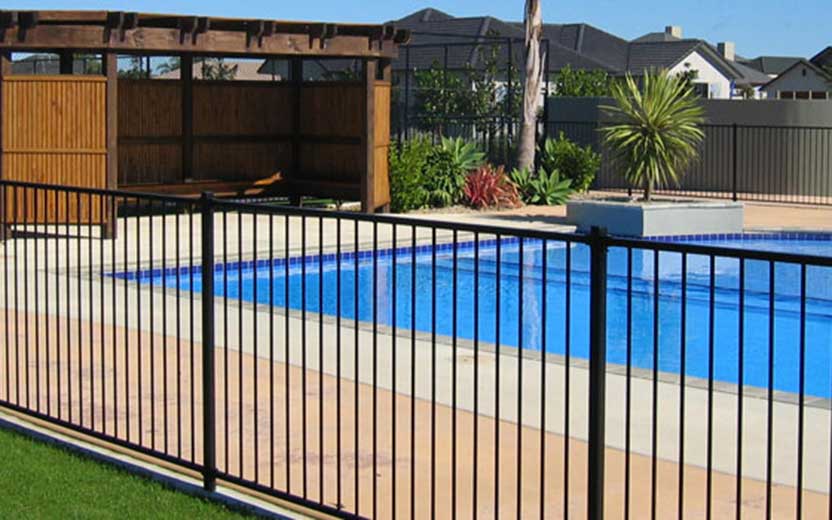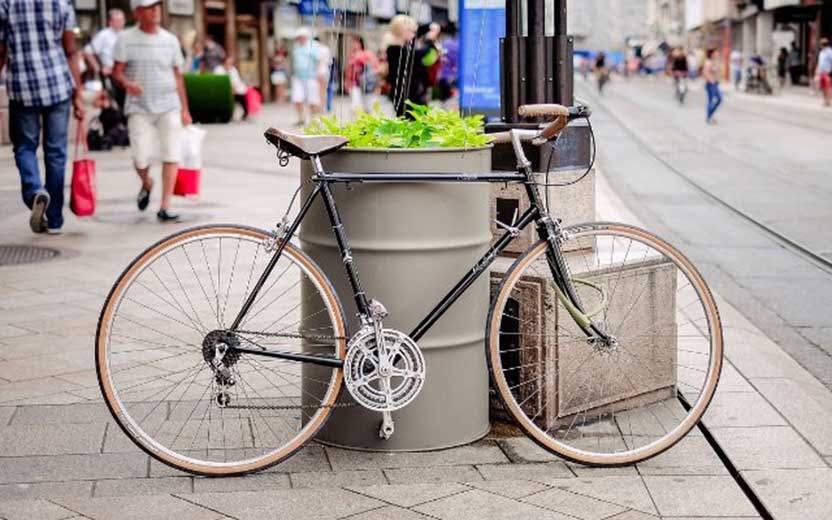By Marcus Fernandez
As teenagers grow up and start to explore the world on their own, it’s typical for their parents to be concerned about their safety. Parents can feel more at ease by teaching their teens how to stay safe when mom and dad are not around. Whether they’re going out with friends, traveling to new places, working at a new job, or attending summer school, there are certain precautions they can take to avoid danger.
June is “National Safety Month,” which makes it the perfect time for a summer safety guide. This guide will offer practical safety tips for teenagers exploring new-found independence. Hopefully, this will help your teen stay safe while giving parents peace of mind.
School’s out – safety tips for outdoor activities
Teenagers in Tampa Bay have the opportunity to actively participate in beach and outdoor activities. However, it is important for teenagers to take proactive measures in order to lessen potential risks associated with weather and other factors. Some of these precautions include:
- Check the Weather Forecast: It may be bright and sunny right now, but you also want to know what is forecasted for later if you plan to be outdoors for several hours. Check the forecast and plan activities accordingly. In the event of a forecast predicting thunderstorms, it might be wise to choose safer activities over those that involve exposure to open water, such as boating. Thunderstorms can bring sudden changes in wind, lightning strikes, and heavy rainfall, posing significant risks to anyone caught outdoors. By staying informed and flexible with your plans, you can make informed decisions to protect yourself and others from potential hazards.
- Protect Yourself from the Sun: The Tampa area has a subtropical climate with strong sunshine that quickly burns exposed and unprotected skin. Apply sunscreen rated at SPF 30 or higher to all exposed skin, wear long sleeves and a hat with a wide brim to avoid direct exposure, wear sunglasses rated to protect against UVA and UVB rays, and use an umbrella or move to a shady location to avoid exposure. If you get a sunburn, apply a moisturizer containing aloe vera during the healing process, and limit your exposure to the sun to prevent worsening the sunburn.
- Dress Appropriately: If hiking or participating in outdoor activities that involve prolonged exposure to the sun, it’s essential to dress appropriately to protect yourself from harmful UV rays and varying weather conditions. Wear a hat with a wide brim to shield your face and neck from sunburn. Additionally, choose light-colored, loose-fitting clothing made from breathable fabrics to help keep you cool and comfortable. If you expect to be outdoors after sunset when temperatures can drop significantly, bring or wear a long-sleeved shirt or jacket. Layering your clothing allows you to adjust to changing temperatures, ensuring you stay warm once the sun goes down.
- Stay Hydrated: Proper hydration is crucial, especially during outdoor activities in hot weather. Waiting until you feel thirsty can be a sign that you’re already on your way to dehydration. To maintain optimal hydration, drink water regularly throughout the day. Carry a sufficient amount of water with you, particularly if you are heading to a location where drinking water might not be readily available. For longer hikes or strenuous activities, consider using a hydration pack or carrying electrolyte-enhanced drinks to help replenish lost minerals and fluids. By staying ahead of your hydration needs, you can keep your energy levels up and avoid the risks associated with dehydration.
- Properly Store Food for Outdoor Consumption: When packing food for a poolside or beach barbeque or picnic, be mindful of the effect of the extreme summer temperatures. Raw or pre-cooked and prepared foods must be packed and stored to keep them at safe temperatures to prevent bacteria from multiplying and making them unsafe to consume. According to the Food and Drug Administration, raw meat, fish, and poultry should be stored at no warmer than 40 degrees Fahrenheit. Keep coolers closed to avoid warm air getting into them.
- Be Aware of Heat-Related Illnesses: Muscle cramps, heat exhaustion, and heat stroke can turn outdoor activities into serious health issues. You may suffer from a heat-related illness if you develop muscle cramps, nausea, vomiting, or rapid heart rate. If you have symptoms of heat exhaustion, move to a cool place to rest and lower your body temperature. Cool (but not ice-cold) sports drinks can help reduce your body temperature and replace lost nutrients. If symptoms persist, seek emergency medical treatment.
- Swimming Safety: Florida ranks third out of all states for teen deaths by unintentional drowning. Swim in areas with lifeguard supervision, but it’s still advisable to swim with a buddy, even if where you swim is a backyard swimming pool. Avoid diving unless you know the water is deep enough and submerged rocks and other hazards do not lurk below the surface. Know your swimming ability, and do not exceed it. For example, ocean currents and swift-flowing rivers can be physically challenging even for experienced swimmers and deadly for inexperienced swimmers.
- Don’t Let a Car Accident Spoil Your Summer: Vacations, trips to the beach, and other summertime activities probably mean that you’ll be spending more time in the car, to reduce the risk of a car accident, make sure to get your car serviced to ensure that brakes, steering, and other essential systems operate properly, make sure that everyone in the car has their seatbelt properly fastened, do not drive after consuming drugs or alcohol, avoid texting, eating, conversations with passengers, and other types of behavior that may distract you from the task of driving, obey traffic laws and avoid speeding or aggressive driving, and give yourself sufficient time to get to your planned destination without rushing.
When engaging in outdoor activities, it’s crucial to be mindful of constant dangers like dehydration and heat-related illness. Be proactive in maintaining proper hydration throughout the day, regardless of your level of activity. Also, don’t forget to regularly take breaks from the sun and heat.
Florida work rules teens and their parents need to know
State and federal laws in Florida protect teenagers who are younger than age 18 by barring them from doing certain types of jobs, including the following:
- Any work involving the use of explosives.
- Manufacturing bricks, tiles, and similar products.
- Logging or working in a sawmill.
- Meatpacking, slaughtering, and processing meat.
- Work requiring scaffolding, ladders, or working at heights above six feet.
- Operating power saws and guillotine shears.
Additional rules in the state add more work restrictions for teens who are 14 and 15 years old. These rules include prohibiting them from occupations involving the following activities:
- Loading and unloading trucks, conveyors, and railroad cars.
- Working in meet coolers and freezers.
- Operating, maintaining, or repairing machinery and equipment.
- Using, cleaning, or repairing powered slicers, grindings, choppers, cutters, and mixers used in the food industry.
- Transportation, warehousing, and construction industries.
Parents should check with employers to ensure that their teens are not doing dangerous work, regardless of whether the law prohibits them from doing those occupations. Parents also need to ensure that teenagers receive the proper training and safety equipment. It’s important to ensure they are in a safe and healthy workplace.
Safety while taking classes during the summer
Many Florida colleges and universities open their doors to high school seniors and juniors with programs designed to introduce them to the college experience. Parents and teens should learn about security on campus. This includes knowing the location of the campus security or police department office and how to contact them in an emergency. Some campuses have call boxes installed at various locations on campus for students to use. These are great if they need immediate police or security assistance.
If teenagers bring personal items, such as laptop computers, cell phones, and bicycles, parents should stress the importance of not making it easy for thieves by leaving belongings unattended. Parents can check with campus police for safety tips to reinforce to their teenagers before sending them to a summer program.
Safety tips for teen drivers
A teenager in Florida may obtain a learner’s permit at 15 years old and a driver’s license at 16. However, teens younger than 17 may not drive between 11 p.m. and 6 a.m. When they reach the age of 17, they may not drive between 1 a.m. and 5 a.m.
To minimize the chances of accidents or receiving traffic tickets, teen drivers can adopt the following safety tips:
- Drive lawfully by obeying speed limits, maintaining distance, using signals, and avoiding aggressive driving.
- Drivers and passengers must wear seat belts.
- Avoid distracting behaviors, such as texting and talking on the phone, adjusting the volume or tuning the radio, eating, and turning to talk to passengers in the rear seat, to prevent accidents caused by distracted driving.
- Adjust your speed and distance between vehicles according to the weather. Rain, fog, or other inclement weather conditions require slower speeds and more distance between vehicles to offset limited visibility or increased stopping distances.
- Do not drive after consuming alcohol or taking drugs. Taking prescribed and over-the-counter medications before driving can pose risks as they often induce drowsiness or have other side effects that could compromise driving safety.
Parents should actively stress the dangers of riding with an impaired driver to their teenagers. Let them know you will provide a ride home if they are ever in that situation.
When accidents occur, contact a Tampa personal injury attorney
We hope these safety tips help keep you and your teenager safe this summer. However, accidents and injuries can still happen despite your best efforts to avoid them. When you or a family member suffer injuries caused by someone else’s negligence, you may have the right to recover compensation. The Tampa personal injury attorneys at the Law Offices of Kinney, Fernandez, & Boire can help. Contact us today for a free consultation and case evaluation.


